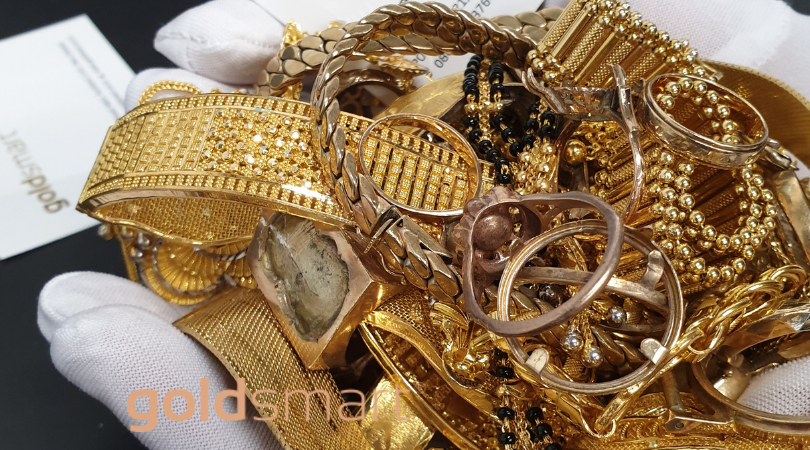
With gold continuing to maintain a high price value, the benefits of selling gold also continue to produce cash value benefits for those who sell the precious metal. However, there are multiple risks and traps for those who try to do so, regularly working against personal sellers to separate them from their gold. And, unfortunately, because personal buyers are usually not used to selling gold on a regular basis, they make for very vulnerable victims who can be duped and tricked on a regular basis all the time. No surprise, New Zealanders can be forgiven for being hesitant to sell their gold even with the high prices. It’s not that people are greedy and want to hold on to higher prices; they are cognizant that risks continue to be high for those trying to sell gold to be swindled by active criminals posing as valid gold buyers.
Selling your gold in New Zealand doesn’t need to be hassle or a risk
Gold scams generally tend to fall into two categories: scammers offering to sell gold and instead steal people’s money from them with fraud, and people offering to buy gold and trying to avoid paying a fair price for it. The second category matters the most for those with gold already and looking to sell what they have.
It’s well understood that there are lots of gold buyers, even in New Zealand. They range from some of the most professional buyers that are well-established and set the standard for the market to private characters who appear one day and are gone the next. Their skill and knowledge span a sizable range as well. While some have extensive expertise in testing and understanding how to evaluate gold, others don’t even have an idea how to differentiate between gold carats. Others purposefully try to argue with personal sellers, hoping that by bullying customers into selling their gold under pressure, they can get the gold at a lower price than what it is really worth.
With a top professional gold buyer, there is never any confusion about what kind of gold they are evaluating or looking at, and there is no bullying involves with regards to trying to pressure a personal seller into agreeing to lower prices than what is fair. Remember, your brain has multiple ways that it picks up and understands your environment. The problem is that most of us don’t always pay attention to all the signals. For example, it’s quite common for people to suddenly become anxious when they are sensing a risk but not sure what it is or where it comes from. The brain is picking up stimuli and release hormones in the body to get prepared. However, the logical side of the mind isn’t quite understanding what’s going on immediately, or how to translate the stimuli. So, it stays confused or ignores the issue because the signs don’t align with what the brain expects to comprehend with social norms and expectations.
The reality is, we should be listening to all our senses, especially when they are picking up signals of risk that is near us. That’s why personal sellers get apprehensive when a supposed buyer is starting to put on the squeeze to pressure a personal seller into a lower, undesirable price point for gold being sold. Trust your gut and walk away from situations that are not comfortable. It’s your subconscious trying to warn you what’s obvious, but your logical brain can’t see it yet.
However, other scams are not so blunt or overt such as hard pressure. Instead, they use subtle administrative sleight of hand to dupe a personal seller out of value. Many times less reputable gold buyers will use fees and various complex paperwork to push personal sellers into legal-sound commitments. The goal, of course, is to create additional means by which to lower the actual amount of money paid for the gold bought. The fees and their descriptions can vary, but they all serve the same purpose: reduce the amount of cash paid for the gold being sold. These administrative fees will typically come in the form of made-up “taxes” and permit fees. They will also be present in the form of “test” fees to evaluate the gold, with the buyer arguing he has to cover the cost of a testing service and it’s not his fault the fee eats into money eventually paid.
The third type of scam involves duping the personal buyer with the quality of the gold involved. This is both sleight of hand and pressure tactic, even if the seller does actually know the type of gold that is involved. It starts out with gold that doesn’t have a clear identifier such as quality code, a marking for the carat type, or a manufacturer’s mark. Because the personal seller can’t use anything objectively, the person becomes vulnerable to a buyer who puts on a hard act arguing that his immediate testing is showing that the gold to be sold is not 18 or 22 carat gold, as the personal seller thought, but in fact far cheaper 10 carat gold. The buyer puts on the pressure that his testing tools prove the case, and the personal buyer feels embarrassed. The situation works to the buyer’s advantage, and there’s a high likelihood he gets the gold for cheap, with the personal buyer self-doubting his or her own knowledge about the item, coin, or jewellery.

Taking Advantage of Desperation
While not a scam, the fourth problem could arguably be compared to one given how it works. A number of less-than-stellar gold buyers focus on people who need cash right away and are desperate to sell their gold for it. Oftentimes involving personal gold sellers who are in financial problems, owe money, or are dealing with an emergency, the approach focuses on the positioning. These types of gold buyers emphasize quick cash without questions and easy selling. However, they have no intention of providing a fair value based on market prices for recycled gold. Instead, they purposefully low ball prices hard, knowing darn well that the personal seller that comes to them is already under significant stress and demands to get cash quickly. These types of buyers aren’t situations in nice offices or the good part of the neighborhood. They are purposefully positioned in lower-income neighborhoods and areas, knowing the likelihood of desperate customers are far more common there.
These outfits are most commonly found operating as pawn shops or payday loan offices or side businesses at a local corner market or similar. They work with the same clientele who are looking for small, short-term cash loans and are willing to provide valuable personal property as collateral for it.
Convenient Buying
The next problem buyer tends to be the gold party buyer or short-term local town visitor. These types of gold buyers operate as private buyers versus regular businesses with a brick and mortar address. They will work through a local who is already knowing, usually paying the person a fee for the liberty to have the gold meeting or sale at the person’s house or public business, such as a local hotel conference room or a pub. Once the logistics are in place, then the person goes around town advertising a willingness to buy personal gold on the spot with ready cash. However, the opportunity is only available that night or for a weekend. After that, the buyer will be gone. So those who have gold to sell need to take advantage of the chance and do so then. This urgency approach works on the idea that most people would like to have ready cash immediately and don’t want to go out of their way to find a regular gold-buying business. So, convenience and familiar social pressure work their magic to make the sale happen. Unfortunately, the gold buyer then tries to pay at a very low price level, usually 10 carat levels for higher quality if possible. The buyer makes off with success if personal sellers agree.

The Right Way to Sell Your Gold
The first step anyone should take with selling personal gold is to first understand what you have in hand. That means going through all your gold items and personally identifying what is possible in terms of accurately categorizing your gold. First, look for any hallmarks, stamps, or manufacturers’ marks on your gold. These aren’t always in the most obvious or visible places. However, some might actually exist. So, go over all your gold carefully. Use glasses if your eyes need help or use a magnifying glass. Your ego is not at issue here.
If you do not have any marks, check to see if you have any paperwork on your gold. Coins actually tend to be fairly easy if government-issued. They are measurable and trackable, which helps to identify their issue, their gold quality, and their collectability if that applies as well. Jewellery can be harder. Ideally, the jewellery has paperwork from a recognized manufacturer and can be identified. Where so, you can then confirm the gold quality involved as well. If, however, your gold has no marks, no paperwork, and no history, then you are best served by getting it appraised first before selling. Doing so helps you confirm an expert opinion for your gold’s worth before going into discussions with a gold buyer. That appraisal fee might seem like an extra cost, but knowing the difference between your gold being 18 carat and 10 carat can more than pay for the fee with plenty of value left over to cover a lot more.
A Dependable Solution
Selling your gold in New Zealand doesn’t need to be a hassle or a risk. Instead, you can safely sell your second-hand, unwanted, or scrap gold without worry as well as obtain fair pricing for your gold with an objective evaluation. And, there is no pressure to sell. How is all this possible, unlike the problem of gold buyers that seem to be so prevalent? One name: Gold Smart. As one of New Zealand’s most established and reputable gold buyers, Gold Smart has serviced customer after customer, buying gold at fair prices and providing New Zealand a dependable means for selling unwanted gold for value, cash, and liquidity. So, when it’s time to sell your Kiwi gold, don’t play games with buyers who don’t have your best interest in mind. Gold Smart will always work fairly with you. We value our customers and reputation far more than a quick sale. You will always have your best option and gold sale with us at Gold Smart.